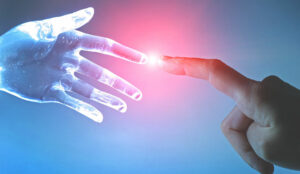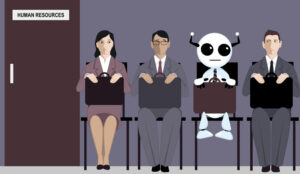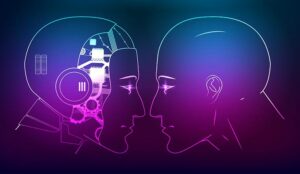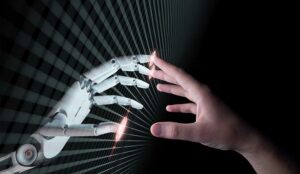Gareth Hole explains how robots can enhance the human workforce, as well as the customer experience.
Artificial Intelligence (AI) is a hot topic at the moment and many are divided on it.
On one hand, you have the advocates that hail its ability to perform tasks better and faster than humans ever have. And on the other hand, you have those that argue that it will lead to growing uncertainty around job stability for the human workforce.
Whatever your opinion is, one thing is certain: we need to talk about how artificial intelligence is changing the way we live and work.
Much has been said about the downsides of AI, but the evidence continues to point to the many benefits businesses can hope to see from the rise of robots and AI.
For example, a recent report from The Centre for Policy Studies suggested that we should not worry about the rise of robots but embrace the revolution as an opportunity to boost growth, lift wages and fix productivity problems. This is a view held by many organisations for some time now.
In these organisations, large-scale robotic process automation (RPA) initiatives have become a reality, bringing tangible benefits to businesses and employees alike.
AI Enhances the Customer Experience
When it comes to the customer experience, the benefits are even more pronounced. According to Forrester, the revenue impact of good customer experiences is quite significant. Forrester created a “CX Index” methodology to measure how effective customer service is. For an average big-box retailer, a one-point improvement in a CX Index score can lead to an incremental $244 million in revenue. For traditional retail banks, this figure is around $124 million, and wireless service providers may see figures as high as $278 million.
Customer experience has become a major battle ground for competing organisations. One that poses a myriad of challenges for organisations of all sizes.
On one hand, you have the digital revolution and the explosion of data that has conditioned consumers to expect instant gratification and consistency across channels, as well as the knowledge of their personal preferences and history to enable a seamless interaction. On the other hand, the deluge of information makes it difficult for organisations to get the best value out of the information they have.
Without AI, making sense of unstructured data would be an expensive task relying on experienced human labour. With the intervention of cognitive bots to analyse and interpret unstructured data, this frees up human employees to focus on the human elements of customer service.
AI will help in three specific ways: by processing large volumes of unstructured data efficiently, by unlocking the ability to make more sophisticated decisions automatically, and, most importantly, by learning from the results of those decisions and improving the automated decision-making even further.
AI Enhances the Human Workforce
A major benefit of RPA is that it frees employees from the burden of monotonous, repetitive tasks, allowing them to focus on performing the tasks they truly love. This increases employee motivation and leads to a better overall customer experience with greatly enhanced efficiency.
For example, one of the UK’s largest mobile network providers automated 32 processes across its business, saving more than 4 million seconds per month. There is also an expected £1 million of additional benefits. Imagine the incremental benefits of including more unstructured data in those automations, having better decision-making and learning over time how to further improve those decisions, so that customer needs can be addressed proactively and comprehensively.
With RPA and artificial intelligence, organisations can also meet their service-level agreements 100 percent of the time, creating new standards in the process. As the technology matures, organisations will also be able to automate more processes and tackle more complex scenarios than ever before.
Without automation, consumers will have to face compromised accuracy and longer wait times for resolutions. In industries such as financial services and insurance, errors can be very costly, leading to major damage to brand image, or expensive lawsuits.
As process automation takes over the repetitive, routine manual work, human error is eliminated, and costly mistakes no longer happen. Highly engaged and digitally enabled customers of today expect more efficient and personalised services than ever before, and only businesses who have the digital capabilities to keep up with more sophisticated and growing customer demands will remain relevant in the long run.
Any new technology will have its naysayers, but when you look at the hard facts, it will be difficult to make a case against automation and artificial intelligence. It is rapidly establishing itself as a critical asset to enterprises, bringing significant ROI, offering great benefits to the workforce and transforming the way we work. Everybody wins.
Author: Robyn Coppell
Published On: 11th Jan 2018 - Last modified: 16th Jan 2018
Read more about - Guest Blogs, NICE


















